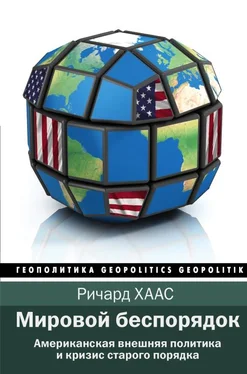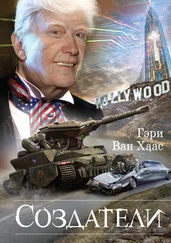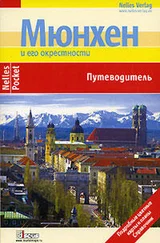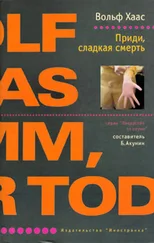Отличная работа о прошлом, настоящем и будущем доллара: Barry Eichengreen, Exorbitant Privilege: The Rise and Fall of the Dollar and the Future of the International Monetary System (Oxford: Oxford University Press, 2011).
Интересная аналитика: Jose Signoret et al., Trans-Pacific Partnership Agreement: Likely Impact on the U. S. Economy and on Specific Industry Sectors, May 2016, United States International Trade Commission, www.usitc.gov/publications/552/pub4607.pdf; Peter A. Petri and Michael G. Plummer, The Economic Effects of the Trans-Pacific Partnership: New Estimates, Peterson Institute of International Economics Working Paper Series, January 2016, https://piie.com/system/files /documents/wpl6–2_0.pdf
См. Robert Z. Lawrence and Lawrence Edwards, “Shattering the Myths About U. S. Trade Policy”, Harvard Business Review, March 2012, www.hks.harvard.edu/fs/rlawrence/ShatteringMyths.pdf; Robert Z. Lawrence and Lawrence Edwards, “US Employment Deindustrialization: Insights from History and the International Experience”, Peterson Institute for International Economics, October 2015, https://plie.com/sites/default/files/publications/pb/pbl5–17.pdf; and Gregg Easterbrook, “When Did Optimism Become Uncool?”, New York Times, May 12, 2016, www.nytimes.com/2016/05/15/opinion/sunday/when-did-optimism-become-uncool.html.
См. Aaron Smith, Janna Anderson, and Lee Rainie, “AI, Robotics, and the Future of Jobs”// Pew Research Center, August 6, 2014, www.pewinternet.org/files/2014/08/Future-of-AI-Robotics-and-Jobs.pdf; Tom Standage, “The Return of the Machinery Question”, Special Report: Artificial Intelligence, Economist, June 25, 2016, www.economist.com/news/special-report/21700761-after-many-false-starts-artificial-intelligence-has-taken-will-it-cause-mass; Michael Chui, James Manyika, and Mehdi Miremadi, “Where Machines Could Replace Humans – and Where They Can’t (Yet)”, McKinsey Quarterly, July 2016, www.mckinsey.com/business-functions/business-technology/our-insights/where-machines-could-replace-humans-and-where-they-cant-yet.
Jonathan Rauch, “How American Politics Went Insane”, Atlantic, July /August 2016, www.theatlantic.com/magazine/archive/2016/07/how-american-politics-went-insane/485570/
Классическое исследование по данному вопросу: Mancur Olson, The Rise and Decline of Nations: Economic Growth, Stagflation, and Social Rigidities (New Haven, CT: Yale University Press, 1982).
См., например, Ryan Lizza, “The Center Is Dead in American Politics”, New Yorker, October 21, 2015, www.newyorker.com/news/news-desk/the-center-is-dead-in-american-politics; Jane Mansbridge, “Three Reasons Polarization Is Here to Stay”, Washington Post, March 11, 2016, www.washingtonpost.com/news/in-theory/wp/2016/05/ll/three-reasons-political-polarization-is-here-to-stay.
Негласное правило, к которому активно прибегали в палате представителей республиканцы – председатели палаты в середине 1990-х годов, дабы парламентское меньшинство не могло выставлять свои законопроекты на голосование. Традиция приписывает употребление этого правила спикеру Д. Хастерту (возглавлял палату в 1999–2007 гг.), однако уже его непосредственный предшественник Н. Гингрич (1995–1997) часто использовал это правило.
Обобщенное название серии радиообращений президента Ф. Рузвельта к американскому народу, подразумевавших обратную связь (через письма в администрацию президента и Конгресс).
Досл. «Стоять на решенном» ( лат .).
Автор обучался в Оксфорде как стипендиат Родса (международной программы обучения) и в 1978 г. получил докторскую степень по философии.
Отсылка к образу из трактата ирландского философа-идеалиста Дж. Беркли «О принципах человеческого знания» (1710): «никем не воспринимаемые» деревья сопоставляются с «идеями деревьев», которые «некому воспринимать».
Конец ознакомительного отрывка
Купить книгу










![Пальмира Керлис - Беспорядок вещей [litres]](/books/416958/palmira-kerlis-besporyadok-vechej-litres-thumb.webp)
![Майке Хаас - Экскурсия на другую планету [litres]](/books/433075/majke-haas-ekskursiya-na-druguyu-planetu-litres-thumb.webp)
